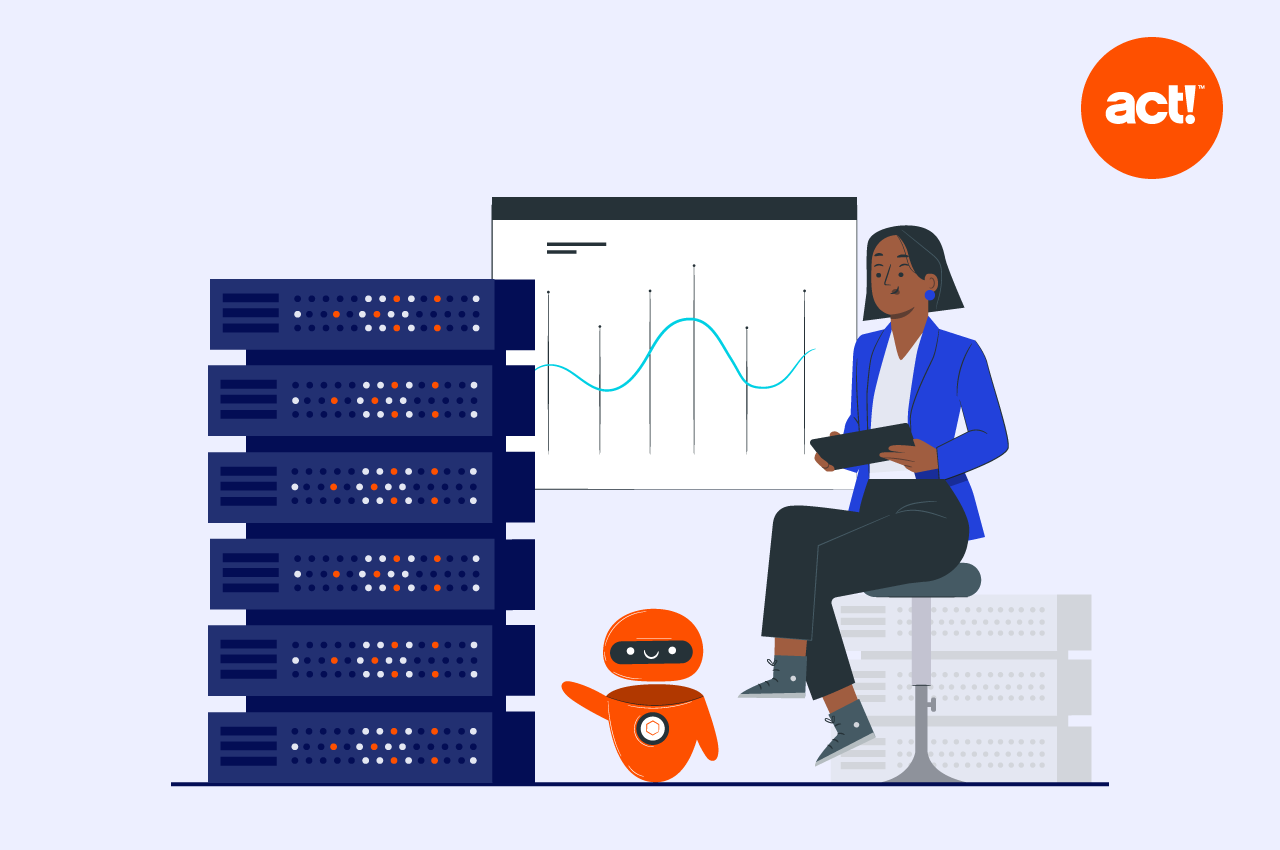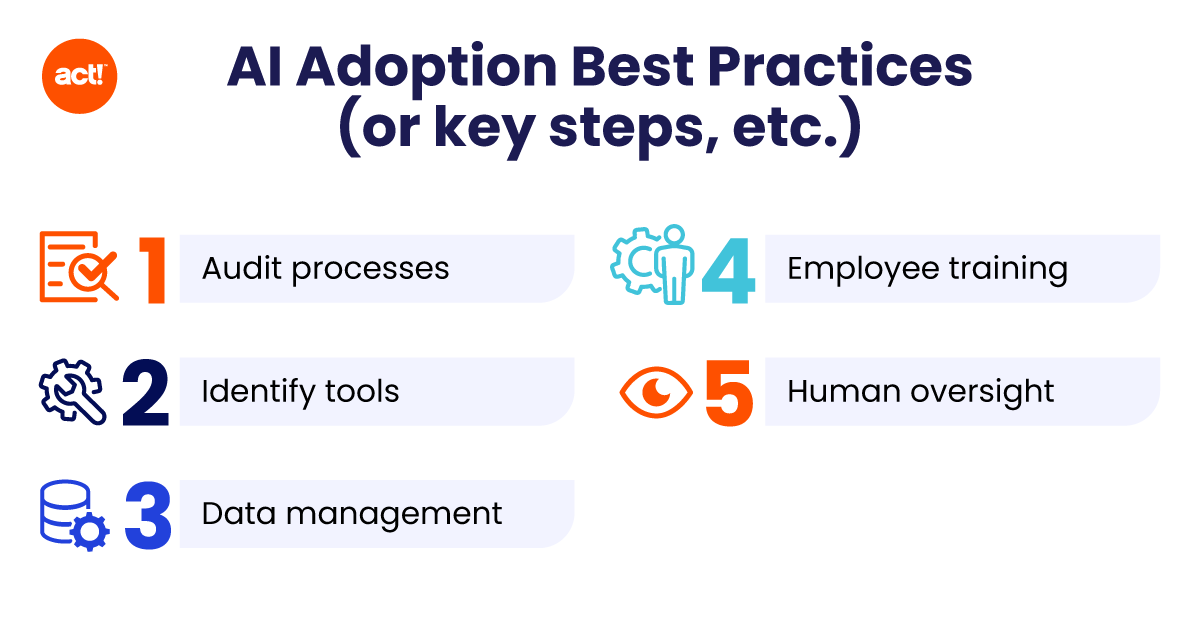
Embracing artificial intelligence (AI) solutions is quickly becoming the norm for organizations that want to enhance operational efficiency. While enterprises have been at the forefront of AI adoption, small and mid-sized businesses (SMBs) are catching up fast.
According to a recent survey, 75 percent of small businesses already use AI solutions. Also, over 90 percent of SMB owners agree that AI tools drive cost and time savings and maximize profitability.

Besides automating routine tasks, AI systems can help small businesses improve customer experience and decision-making processes. Plus, they help forecast cash flow, sales, and market demand. They can even identify fraudulent transactions, human errors, and unusual activities. Significant cost savings is yet another advantage of AI implementation.
And the results show. A survey revealed that businesses that used AI saw a 12-point rise in their likelihood of profit growth over non-adopters.
Nevertheless, 90 percent of small business owners reported facing obstacles in integrating AI into their operations. It’s more complex than simply using ChatGPT and Midjourney to create marketing materials in seconds.
In this article, we’ll outline the key AI adoption challenges for small businesses and effective ways to overcome them.
Adopting AI technologies: Challenges for SMBs
From accounting and inventory management to marketing and customer support, AI tools help improve various business functions through the power of machine learning. But despite realizing the benefits of AI adoption, small businesses often lack the resources and technical expertise to implement AI projects. They don’t have adequate budgets to build proprietary AI systems or recruit AI experts to oversee adoption and use.
Case in point—47 percent of SMB owners cited not knowing how to use AI tools as a significant deterrent to adoption. Other challenges they pointed out included non-compatibility with existing systems (31 percent) and security and privacy concerns (26 percent).
Then, there’s the issue of inaccurate results and bias. AI algorithms are limited by the data sets used to train AI models. They are prone to “hallucinations” and can generate incorrect or misleading information.
For instance, the last thing you want is for an AI-powered chatbot on your company website to provide false product details to customers. Worse still, it might make derogatory remarks and turn customers away.
Plus, these systems can reinforce patterns of bias and discrimination present in the data used to train them. For instance, in 2018, Amazon developed an experimental AI recruiting tool trained on résumés submitted to the company over the last 10 years. The software showed clear bias against women and even recommended unqualified candidates.
It’s also worth noting that many small businesses don’t have the necessary infrastructure and processes in place for data collection and management for AI initiatives. This can lead to duplication, inconsistency, and other quality issues. That, in turn, can prevent SMEs from harnessing the full benefits of AI solutions.
They also lack continuous learning programs in-house that can be used for upskilling existing employees. This can cause SMBs to lose their competitiveness against larger corporations.

Best practices for AI adoption in SMBs
Embracing AI for small businesses isn’t as straightforward as using a few AI-powered tools. You need to adopt a strategic approach to ensure a seamless transition to these systems.
If you’re looking to adopt AI solutions for a small business, keep the following best practices in mind:

1. Audit your existing processes
Adoption of AI applications for your small businesses doesn’t mean you have to automate every function. Instead, the key to successfully implementing AI for a small business is understanding which processes stand to benefit from it.
Evaluate your current systems and processes to determine whether there’s potential to improve their efficiency with AI technologies.
Keep an eye out for business functions and processes where employees spend most of their time performing routine tasks. Also, identify areas that could benefit from AI-driven analytics and decision-making. Lastly, weigh the efficiency gains against the cost, effort, and time required to implement new AI systems.
2. Identify the right tools
Most SMBs lack the funds and resources to develop proprietary AI solutions. The good news is that you’ll find a broad spectrum of ready-to-use AI tools for any task. Be it to improve customer support or reduce instances of customer account fraud, you can choose from various cloud-based AI providers. You can also get into partnerships with other companies if you intend to develop one.
Other AI tools that can come in handy for small businesses include:
- Trello for project management
- Vic.ai for accounting
- ChatGPT and Jasper for content writing
- Manatal for recruitment
- Power BI for data analytics
The final selection of AI tools will depend on the processes you want to streamline. Dig deeper into their customer data privacy and data protection policies to determine whether you can trust them with sensitive business information. Also, make sure they support integration with your existing tech stack.
3. Implement data management practices
Use a secure centralized repository, such as a data warehouse, to collect data from various sources. This will serve as a single source of truth and keep your data up to date. Outline clear processes for data formatting so that it can be easily added to the platform. It’s also a good idea to implement governance policies to maintain data quality.
Check whether the selected platform is compatible with your existing tech stack and the AI tools you intend to use. The idea is to ensure a seamless flow of information among various systems so you can extract meaningful insights from it.
4. Prioritize employee training
Even the best AI technologies will fail to improve operational efficiency if your employees don’t know how to use them. Educate your staff about any new AI tools you’re planning to introduce. Establish a formal training program to walk them through the platform’s features and help them understand how it’ll make their jobs easier. Educate them about the use of AI, data management frameworks, data-driven decision making, and more.
5. Don’t lose the human touch
Keep in mind that AI systems aren’t an alternative to human insight and intelligence. While these tools can help cut operational costs and speed up processes, employees must oversee their operations.
It could be as simple as fact-checking an AI-written blog before publishing it on your company’s website. Similarly, you can audit the output of AI analytics tools to determine the accuracy of the insights they provide.
Retaining the human touch is crucial to minimizing issues arising from biases and hallucinations inherent to AI solutions. It also plays an important role in keeping customer satisfaction levels high.

Act! makes AI work for your small business
Adopting AI solutions for your company is an excellent way to streamline business operations and skyrocket efficiency. It gives you a competitive edge and lets you delight customers with a frictionless experience.
The key to the successful implementation of AI for SMBs is selecting the right tools and ensuring seamless integration with existing systems. It’s just as crucial to establish data governance and management policies.
Lastly, train your employees to use AI tools to support their jobs instead of relying on these solutions to take over their tasks.
Act! offers an AI-powered marketing assistant to help you create content for emails, landing pages, and other marketing collateral. You can even use it for proofreading and translation.
Additionally, with Act!’s marketing automation features, you can create response-driven email campaigns for lead nurturing. It even helps you create workflows for scoring leads and sending alerts for timely follow-ups based on a prospect’s actions. Get access to your free trial now to see how it works.






